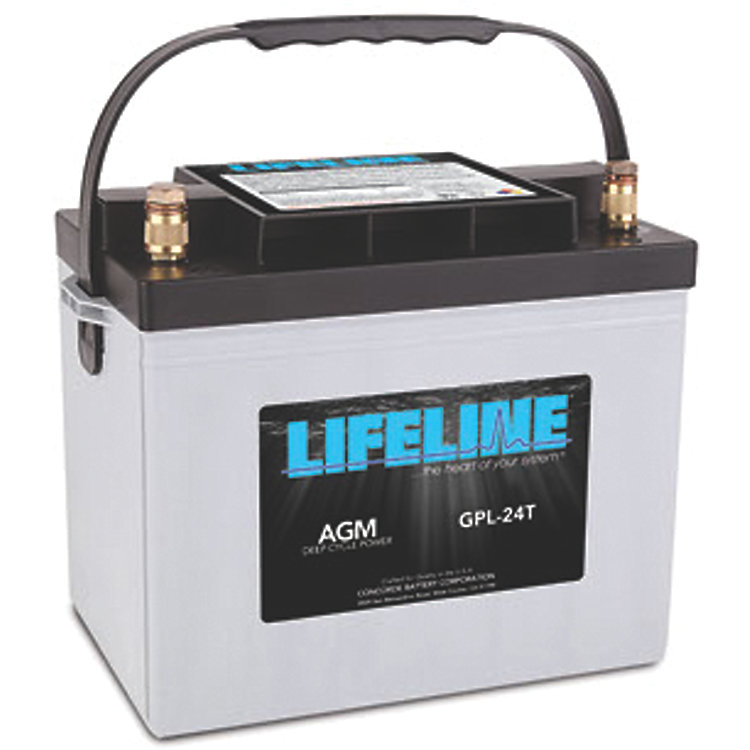You can easily do all of this yourself.
Just to keep terminology straight-what you are calling an isolator is really a relay. Isolator implies the diode based isolators that are basically junk and should not be used due to the voltage drop they cause.
Voltage sensing relays are easier to install than the PAC unit you show. I really don't know Samplex as they are a new name in the USA, but BLUE Sea makes several great voltage sensing relays (they call them Automatic Charging relays) and they work great and have a lifetime warranty. I like the 120 amp size because it's enough for most applications and seriously take 3 wires to hook it up-2 power leads and a small ground.
Bussman makes good circuit breakers-you need to decide what size wire cable you want to run, and then protect the cable with an appropriate fuse. Blue Sea also sells a waterproof version of the Bussman breakers. I might suggest 2ga wire protected with a 150 amp breaker or fuse. If you are planning for your battery box to be in the back, you need to be very careful about wiring where it crosses the firewall since that's a common chafe point. Assuming your relay is under the hood, you're going to need to put fuses or breakers right at each battery
Your big ARB fridge is going to use a lot of power-I'm estimating 40-50 amp hours per day depending on temperature. So for that kind of load you're looking at a 100 amp hour battery, since cycling a deep cycle battery should not go below 50% capacity if you want it to live a long time. Nothing wrong with flooded lead acid batteries. They are significantly cheaper, just get one big enough to meet your proposed needs.
Regarding solar, if you are not doing that now, just do it later as a separate project and worry about the connections then.
The larger ARB fridges don't always play well with cigarette type plugs. Strongly consider either directly wiring, or using a better connector like Anderson Power Poles. Actually, I hate cigarette type plugs as they are unreliable and there are much better options.
Without knowing what tools you have, it's hard to know what to recommend. Good wire cutters, a wire stripper a crimper, a heat gun for heat shrink. How are you going to mount your battery box? You don't want a 75 pound missile inside the truck in the event of an accident.
Just to keep terminology straight-what you are calling an isolator is really a relay. Isolator implies the diode based isolators that are basically junk and should not be used due to the voltage drop they cause.
Voltage sensing relays are easier to install than the PAC unit you show. I really don't know Samplex as they are a new name in the USA, but BLUE Sea makes several great voltage sensing relays (they call them Automatic Charging relays) and they work great and have a lifetime warranty. I like the 120 amp size because it's enough for most applications and seriously take 3 wires to hook it up-2 power leads and a small ground.
Bussman makes good circuit breakers-you need to decide what size wire cable you want to run, and then protect the cable with an appropriate fuse. Blue Sea also sells a waterproof version of the Bussman breakers. I might suggest 2ga wire protected with a 150 amp breaker or fuse. If you are planning for your battery box to be in the back, you need to be very careful about wiring where it crosses the firewall since that's a common chafe point. Assuming your relay is under the hood, you're going to need to put fuses or breakers right at each battery
Your big ARB fridge is going to use a lot of power-I'm estimating 40-50 amp hours per day depending on temperature. So for that kind of load you're looking at a 100 amp hour battery, since cycling a deep cycle battery should not go below 50% capacity if you want it to live a long time. Nothing wrong with flooded lead acid batteries. They are significantly cheaper, just get one big enough to meet your proposed needs.
Regarding solar, if you are not doing that now, just do it later as a separate project and worry about the connections then.
The larger ARB fridges don't always play well with cigarette type plugs. Strongly consider either directly wiring, or using a better connector like Anderson Power Poles. Actually, I hate cigarette type plugs as they are unreliable and there are much better options.
Without knowing what tools you have, it's hard to know what to recommend. Good wire cutters, a wire stripper a crimper, a heat gun for heat shrink. How are you going to mount your battery box? You don't want a 75 pound missile inside the truck in the event of an accident.






